Data Analyst Course Fees In India – A Comprehensive Guide For Beginners | Updated 2025
4.9 out of 5 based on 14748 votesLast updated on 13th Apr 2024 16.8K Views
- Bookmark

In this post, we'll explore various aspects of Data Analytics Courses in India, Data Analytics Course fees, curriculum, duration, and more.

Over the last decade, data has transformed how we see the world. The massive amount of data generated daily, around 2.5 quintillion bytes globally, comes from emails, texts, YouTube, and more. This explosion of data from e-commerce, banking, social media, and online media has greatly expanded the field of data analytics.
With India having the third-largest internet user base, the demand for data science is growing. By 2022, it's expected that 85% of businesses will have adopted big data and analytics technology.
Data Analytics helps businesses make data-driven decisions, improving efficiency and profitability. Enrolling in Data Analytics Courses Noida equips you with essential skills in data visualization, machine learning, and statistical analysis for career growth.
What is Data Analytics?
Data Analytics encompasses the tools, processes, and techniques for gathering, organizing, storing, analyzing, and managing data. Its primary objective is to apply statistical analysis and technology to identify trends and address issues. By leveraging analytics, businesses can swiftly adapt to market changes and gain a competitive edge. Ultimately, Data Analytics aims to enhance corporate performance.
A Real-life Example of Data Analytics in Action
A prime illustration of Data Analytics at work is seen in Netflix's personalized viewing suggestions. How does this feature contribute to Netflix's commercial success, and how does the platform generate these recommendations?
It all begins with data collection, where Netflix gathers diverse information from its 163 million global subscribers. This includes viewership patterns, device usage, pause/resume activities, content ratings, and search queries.
Through data analytics, Netflix synthesizes this data to create detailed viewer profiles. The recommendation algorithm then generates personalized suggestions based on significant trends and patterns in each user's viewing behavior.
This personalized approach significantly enhances the user experience, with personalized recommendations driving over 75% of viewing engagement, as reported by Netflix. This strategy has propelled Netflix's dominance in the global streaming market, reflected in its continuous growth in revenue and user base.
Note: A Data Engineer designs, builds, and manages data pipelines for analytics and AI. Enrolling in a Data Engineer Course With Placement ensures hands-on experience and career opportunities in this high-demand field.
Applications of Data Analytics
- Retail: Data analytics empowers retailers to understand customer demands and purchasing patterns, enabling them to forecast trends, recommend new products, and expand their business.
- Healthcare: Healthcare organizations utilize patient data to deliver potentially life-saving diagnoses and treatments. Data analytics also facilitates the development of innovative medication strategies.
- Manufacturing: Through data analytics, the manufacturing sector discovers innovative cost-saving methods. It helps address complex supply chain issues, workforce shortages, and equipment failures.
- Banking Sector: Financial institutions leverage analytics to identify potential loan defaulters and predict customer attrition rates. Additionally, it assists in detecting fraudulent transactions.
- Logistics: Logistics companies utilize data analytics to devise new business models and optimize routes, ensuring timely delivery of goods.
Note: Power BI is a powerful business intelligence tool for data visualization, analysis, and reporting. Enrolling in a Power BI Course in Noida helps professionals master dashboards, DAX, and real-time analytics.
Data Analysis vs Data Analytics
Although "data analytics" and "data analysis" are sometimes used interchangeably, data analysis is a subset of "data analytics" focused on examining, modifying, modeling, and deriving meaning from data. Data analytics encompasses data analysis as well as the procedures and tools required to execute it.
Business Analytics vs Data Analytics
Data analytics also encompasses business analytics, which employs techniques such as data mining, statistical analysis, and predictive modeling from data analytics to aid businesses in making informed decisions.
Tips: Power BI is a powerful business intelligence tool for data visualization and analysis. Earning a Power BI Certification enhances skills, helping professionals create insightful reports and dashboards for better decision-making.
Data Analytics vs Data Science
Data scientists typically focus on generating broad insights, while data analysts concentrate on providing answers to specific queries.
Data science utilizes data to forecast and/or understand the future, while data analytics describes the current or past state of reality.
You May, Also Read These Posts:
Data Analyst Using Python Training Course For Beginners
Role Of Data Analysts In Organization
Who is a Data Analyst?
A data analyst serves as a crucial bridge between stakeholders and data, facilitating its application for strategic business decisions within an organization.
Typical roles and responsibilities of a data analyst include:
- Employing data visualization software to oversee the distribution of customer satisfaction surveys and reporting on the outcomes.
- Identifying needs, establishing success criteria, managing and executing analytical projects, and evaluating outcomes in collaboration with business line owners.
- Monitoring procedures, systems, and practices to identify areas for improvement.
- Proactively engaging with stakeholders, business units, technical teams, and support teams to define concepts, assess needs, and specify functional requirements.
- Converting critical inquiries into actionable analytical tasks.
- Gathering and organizing fresh information from multiple sources to address client inquiries.
- Extracting and delivering new insights to clients using analytical techniques and tools, often through reports or interactive dashboards.
- Transforming data and concepts into visualizations.
- Collaborating with the team's data scientists to identify optimal product solutions.
- Developing, testing, and maintaining backend code.
- Establishing data procedures, defining data quality standards, and implementing data quality processes.
- Managing the codebase and providing recommendations for refactoring and improvements.
- Designing tools and models for data validation to ensure the accuracy of captured data.
- Collaborating within a team to assess and analyze critical data that will inform future business plans.
Know about Data Analyst Online Course with the Croma Campus team and become familiar with all major roles and responsibilities that a data analyst has to handle.
You May Also Read:
Power BI Course Duration and Fees
Microsoft Power BI Certification Cost
Microsoft Power BI Certification
Data Analytics Trends in India
The rapid expansion of digital technology in the last decade has reshaped the global landscape. In 1995, the digital sphere's total capacity was around 140 billion gigabytes, skyrocketing to 50 trillion gigabytes by 2020. To navigate this digital ecosystem, millions of new workers will be needed, with businesses vying for hundreds of thousands of skilled professionals. India stands out among the top 10 nations for big data analytics, boasting 600 companies in the field. Currently valued at $2 billion, India's big data analytics industry is projected to reach $16 billion by 2025.
Data Analytics Jobs in India
Despite a mere 19% increase in the supply of data science professionals in India, demand has surged by a staggering 400%. Approximately 21% of analytics positions in India are open to recent graduates. Key employers include renowned companies such as Tech Mahindra, TCS, Genpact, Wipro, and HCL Infosystems.
Currently, India accounts for over 6% of all global job postings for data analytics. By the end of 2022, it's anticipated that 85% of businesses will have adopted big data and analytics technology, as per a 2018 World Economic Forum (WEF) workforce prediction. By 2025, India is expected to hold a 32% share of the global market. Presently, there are 97,000 open positions in India, with 24% concentrated in Bengaluru, closely followed by Mumbai and Gurgaon.
Various Profiles of Data Analysts:
- IT Systems Analysts: They develop solutions for information technology-related issues.
- Healthcare Data Analysts: These professionals support researchers and clinicians in solving healthcare challenges, as the volume of healthcare data continues to grow rapidly.
- Operations Analysts: Employed by large corporations, they focus on internal operations such as reporting systems, product manufacturing, and distribution.
- Data Scientists: They gather and analyze data, requiring strong knowledge of data analytics tools, programming languages, and data visualization.
- Data Engineers: Responsible for optimizing infrastructure supporting data analytics operations, particularly focusing on large datasets.
- Data Analytics Consultants: Their role is to provide insights to improve business efficiency, often working on projects with defined timelines for multiple companies.
Data Analytics Courses in India
Often, fresh graduates find it challenging to secure employment immediately after completing their undergraduate or graduate studies. This gap often arises due to a lack of exposure to real-world professional environments during formal education. While traditional academic institutions adequately teach theoretical concepts, they may not always provide opportunities to engage with industry demands and essential skills required for careers. To address this gap, numerous organizations and online platforms in India offer Data Analytics Course in Delhi programs and employment opportunities.
Aspiring entrepreneurs and individuals seeking to enter the data analytics field enroll in these courses. Such programs equip students with the skills to derive consumer insights from vast datasets. Those aspiring to become data scientists or analysts typically pursue degrees like B.Tech in Computer Science, M.Sc in Data Analytics, or M.Sc in Computer Science with a focus on data analytics and data science. Bachelor's degrees, typically taking 3–4 years to complete, are usually sufficient for entry-level data analyst positions.
Moreover, individuals can opt for online data analytics certification courses available on platforms like Croma Campus to learn fundamental concepts. They can also obtain globally recognized certifications covering essential tools and programming languages for data analysis, such as Big Data, Python, and Machine Learning.
Relevant Online Courses:
Advanced Python Programming Course
Full Stack Data Science Course
Python Course for Data Science
Machine Learning Online Classes
Data Analytics Course Fees:
The cost of data analytics courses varies depending on the type and level of the program:
- Certification level Data Analytics Course price: INR 500 – 10,000
- Diploma level Data Analytics Course Fees: INR 9,300 – 2,00,000
- Undergraduate level Data Analytics Course price: INR 90,000 – 21,00,000
- Postgraduate level Data Analytics Course Fees: INR 20,000 – 23,00,000
Data Analytics Course Fees: Online vs. Offline
The cost of a course typically hinges on its duration, unique features offered by each institute, and post-course support. Both online and offline institutions deliver top-notch training, so the curriculum itself often isn't the sole determinant of the disparity in data analytics course fees among various institutes.
However, factors such as practical projects, access to learning portals, notes, slides, and study materials can significantly influence the difference in fees between online and offline data analytics courses. To know more about data analytics courses and the associate fees, connect with the Croma Campus expert team today!
Subscribe For Free Demo
Free Demo for Corporate & Online Trainings.
Your email address will not be published. Required fields are marked *
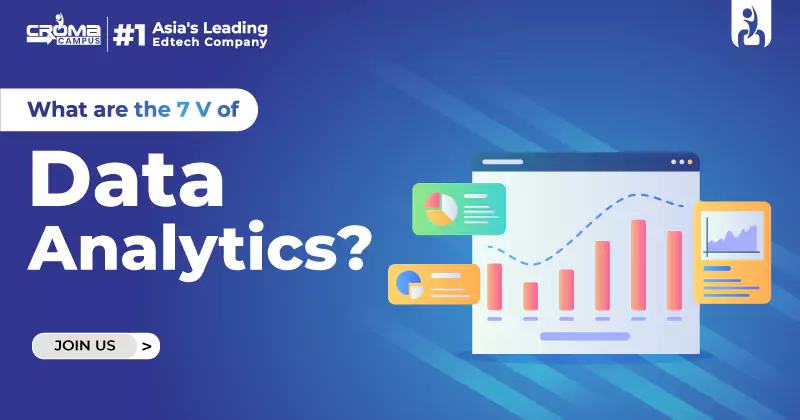
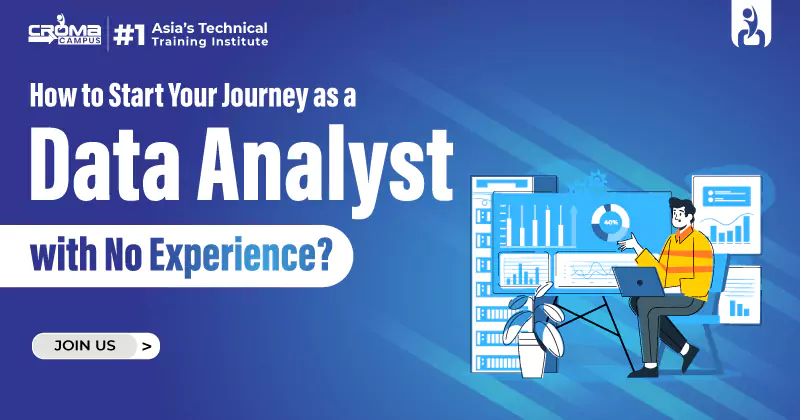
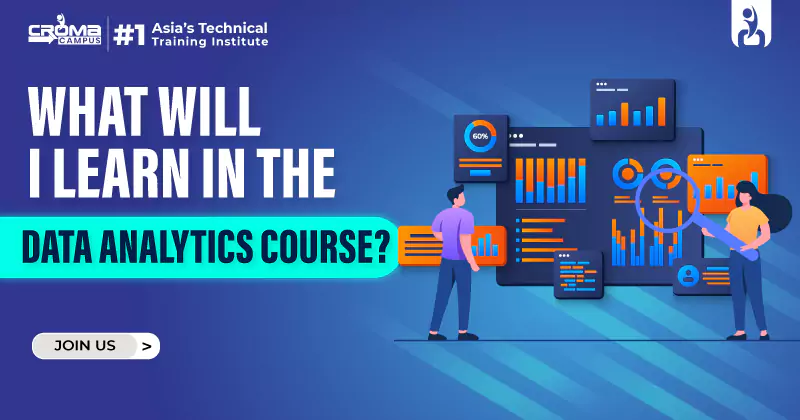
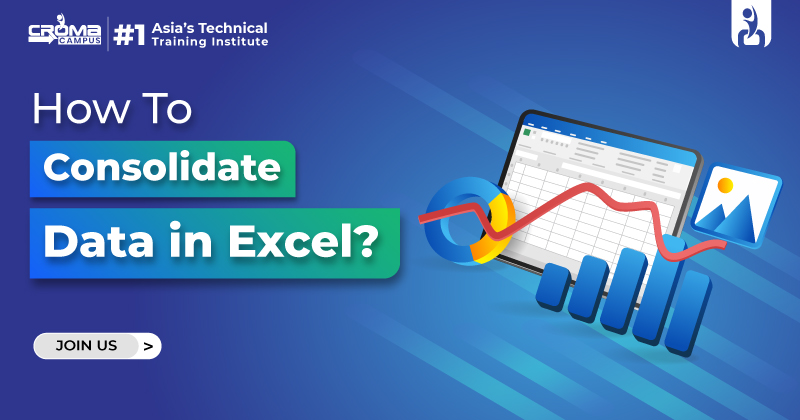
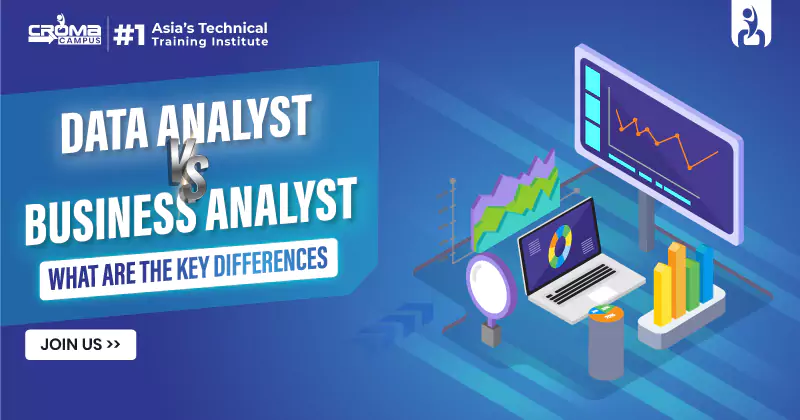
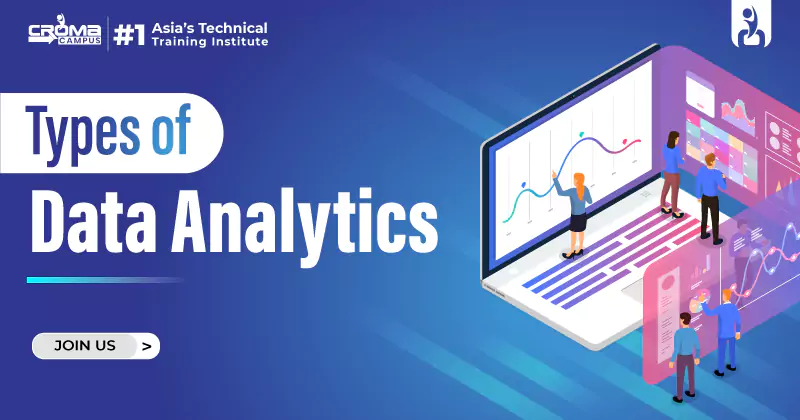
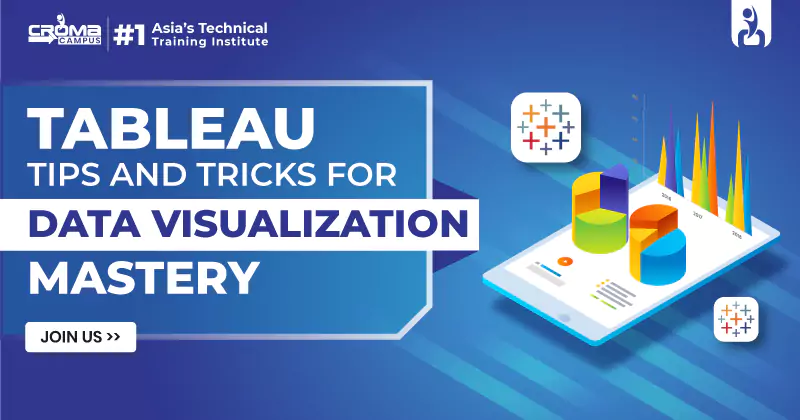
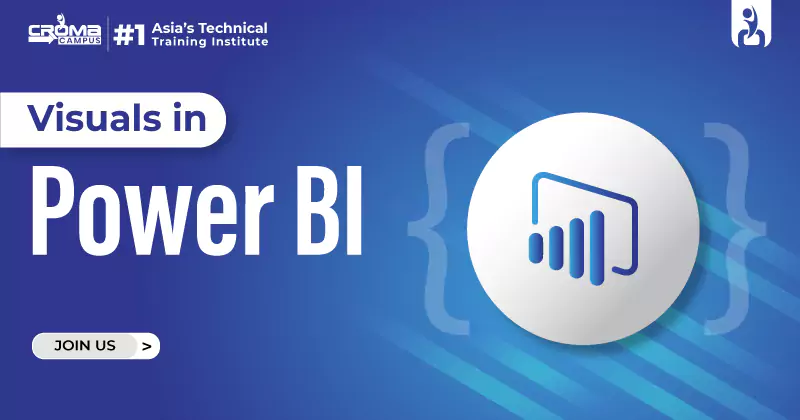

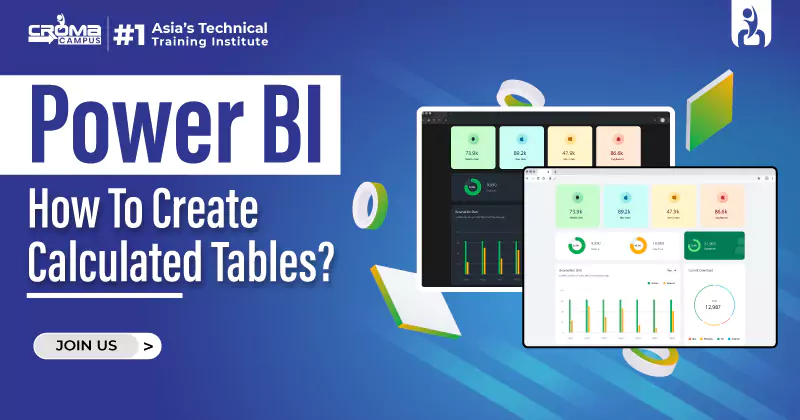
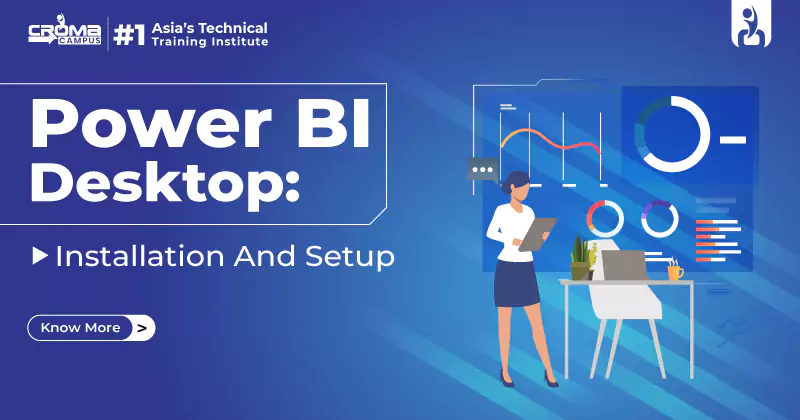










 Master in Cloud Computing Training
Master in Cloud Computing Training